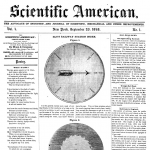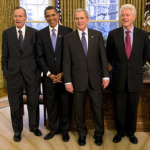Scientific American, a once preeminent magazine that thoughtful and curious people read (or at least respected), has become an outlet for pseudoscience and politics. What a shame.
partisanship
Bari Weiss, a New York Times opinion writer, quit her job following relentless defamatory, bigoted, anti-Semitic, workplace bullying from her super-woke colleagues. And workplace bullying is a lot more common than one might think.
We must dismantle the perfect storm of incivility, anti-intellectualism, and tribalism -- worsened by the sewer pipe of social media -- that has gripped our country. In its place, we must foster a culture of intellectualism, skepticism, and empathy. But that lofty goal seems unreachable in the current milieu.
Americans have developed a social pathology in which we pin our collective hope and hatred on a single person, the President of the United States. This began long before Donald Trump took office, but the coronavirus pandemic has greatly worsened the problem.
The coronavirus pandemic has devolved into just another partisan battle. In the process, it has revealed how poorly served Americans are by their leaders and the media.
Academia is in meltdown. A new Gallup survey shows that only 48% of U.S. adults have a "great deal" or "quite a lot" of confidence in academia. That's down from 57% in 2015. And it's not just due to partisanship. Maybe this wouldn't happen if academics were held accountable for their behavior.
Partisanship is a terrible development for our culture. But it's even worse for areas such as public health, because people die when we implement bad, partisan ideas.
The stated mission of 314 Action, a group that supports scientists in their bids for U.S. congressional seats, is laudable. Among its objectives is a desire to "elect more leaders ... from STEM backgrounds." However, if you're a Republican don't expect much action at all.
One of the biggest problems of our hyperpartisan culture is that everything has been turned into a morbid game show.
Gone are the days when politicians and the media acted in the best interest of the American people. Instead, we have manufactured controversy and faux outrage over the most mundane of events. Instead of world news, we get 24/7 coverage of the President's Twitter feed. And instead of serious analysis, we get programming that resembles some horrifying merger of Family Feud, Hunger Games, and Real Housewives of New Jersey.
If we can tune out, move away from, and shun people with whom we disagree, is this course of action also acceptable?









